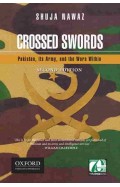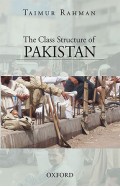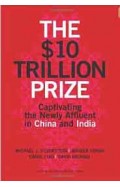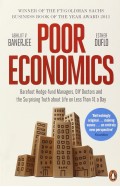A Cry for Justice
By: Kaiser Bengali
-
Rs 967.50
- Rs 1,075.00
- 10%
You save Rs 107.50.
Due to constant currency fluctuation, prices are subject to change with or without notice.
Balochistan is clichéd as the largest province of Pakistan with the smallest population and with vast natural resources. This is indeed true. It is also true that with just 1.5 million families, Balochistan—at one job per family—needs just 1.5 million jobs. Yet the province is abjectly under-developed, with virtually absent physical infrastructure and abysmally low social development indicators. Unemployment and poverty, even hunger, is rampant. Local discontent and anger over the state of affairs has repeatedly boiled over into insurgencies, with one under way currently.
A Cry for Justice empirically documents five different aspects of under-development and deprivation in Balochistan: gas pricing, federal development expenditure, federal social protection, federal civil service, and structure of electoral representation. It is the first attempt to detail the facts of systematic economic exploitation, discrimination, and neglect that Balochistan has shouldered and continues to face—minus the fiction of imagined wrongs.
Balochistan is clichéd as the largest province of Pakistan with the smallest population and with vast natural resources. This is indeed true. It is also true that with just 1.5 million families, Balochistan—at one job per family—needs just 1.5 million jobs. Yet the province is abjectly under-developed, with virtually absent physical infrastructure and abysmally low social development indicators. Unemployment and poverty, even hunger, is rampant. Local discontent and anger over the state of affairs has repeatedly boiled over into insurgencies, with one under way currently.
A Cry for Justice empirically documents five different aspects of under-development and deprivation in Balochistan: gas pricing, federal development expenditure, federal social protection, federal civil service, and structure of electoral representation. It is the first attempt to detail the facts of systematic economic exploitation, discrimination, and neglect that Balochistan has shouldered and continues to face—minus the fiction of imagined wrongs.
Zubin Mehta: A Musical Journey (An Authorized Biography)
By: VOID - Bakhtiar K. Dadabhoy
Rs 892.50 Rs 1,050.00 Ex Tax :Rs 892.50
Crossed Swords Pakistan, its Army, and the Wars Within
By: Shuja Nawaz
Rs 2,421.00 Rs 2,690.00 Ex Tax :Rs 2,421.00
Dying to Serve: Militarism Affect and the Politics of Sacrifice in the Pakistan Army
By: Maria Rashid
Rs 845.75 Rs 995.00 Ex Tax :Rs 845.75
The Ghosts of K2 The Epic Saga of First Ascent
By: Mick Conefrey
Rs 1,165.50 Rs 1,295.00 Ex Tax :Rs 1,165.50
The 10 Trillion Prize Captivating thely Affluent in China and India
By: Michael J. Silverstein
Rs 1,865.75 Rs 2,195.00 Ex Tax :Rs 1,865.75
Global Dexterity: How to Adapt Your Behavior Across Cultures without Losing Yourself in the Process
By: Andy Molinsky
Rs 2,065.50 Rs 2,295.00 Ex Tax :Rs 2,065.50
Poor Economics: The Surprising Truth about Life on Less Than $1 a Day
By: Abhijit Banerjee
Rs 2,515.50 Rs 2,795.00 Ex Tax :Rs 2,515.50
Switch: How to change things when change is hard - (PB)
By: Dan Heath
Rs 1,255.50 Rs 1,395.00 Ex Tax :Rs 1,255.50
The Great Degeneration: How Institutions Decay and Economies Die
By: Niall Ferguson
Rs 2,035.75 Rs 2,395.00 Ex Tax :Rs 2,035.75
Email Revolution : Unleashing The Power To Connect
By: V. A. Shiva Ayyadurai
Rs 977.50 Rs 1,150.00 Ex Tax :Rs 977.50
Money Mania Booms Panics and Busts from Ancient Rome to the Great Meltdown
By: Bob Swarup
Rs 2,252.50 Rs 2,650.00 Ex Tax :Rs 2,252.50
Crossed Swords Pakistan, its Army, and the Wars Within
By: Shuja Nawaz
Rs 2,421.00 Rs 2,690.00 Ex Tax :Rs 2,421.00
Dying to Serve: Militarism Affect and the Politics of Sacrifice in the Pakistan Army
By: Maria Rashid
Rs 845.75 Rs 995.00 Ex Tax :Rs 845.75
The Ghosts of K2 The Epic Saga of First Ascent
By: Mick Conefrey
Rs 1,165.50 Rs 1,295.00 Ex Tax :Rs 1,165.50
No recently viewed books available at the moment.
Zubin Mehta: A Musical Journey (An Authorized Biography)
By: VOID - Bakhtiar K. Dadabhoy
Rs 892.50 Rs 1,050.00 Ex Tax :Rs 892.50
Crossed Swords Pakistan, its Army, and the Wars Within
By: Shuja Nawaz
Rs 2,421.00 Rs 2,690.00 Ex Tax :Rs 2,421.00
Dying to Serve: Militarism Affect and the Politics of Sacrifice in the Pakistan Army
By: Maria Rashid
Rs 845.75 Rs 995.00 Ex Tax :Rs 845.75
The Ghosts of K2 The Epic Saga of First Ascent
By: Mick Conefrey
Rs 1,165.50 Rs 1,295.00 Ex Tax :Rs 1,165.50












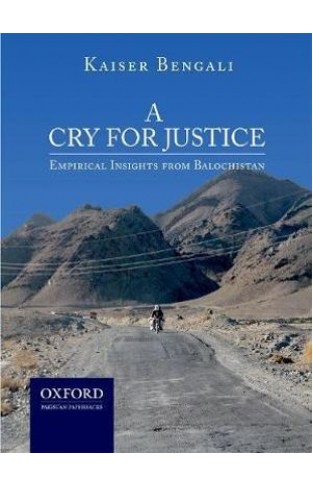
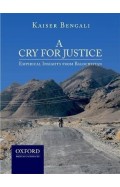
-120x187.jpg?q6)





